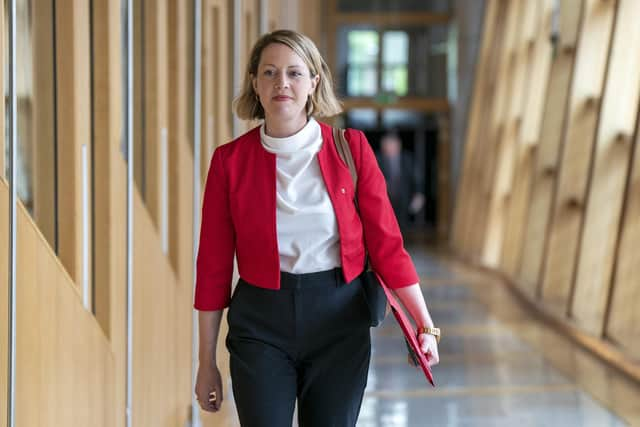Jenny Gilruth is asking teachers to play a key role in shaping education reforms - but will it work?
When Jenny Gilruth was appointed education secretary at the end of March, many wondered whether it would make a difference having a former teacher in the role.
It had been a while, although she was not the first of the devolved era, with ex-teachers Jack McConnell and Hugh Henry both overseeing education at Holyrood for spells in the days of the Labour-Liberal Democrat executive.
Advertisement
Hide AdAdvertisement
Hide AdMost would assume having first-hand experience of the issues involved can only be beneficial for a Government minister or a Cabinet secretary, although it by no means guarantees that they will be any good when it comes to running the department.


After just seven months, the jury is clearly still out on whether Ms Gilruth will be able to make a success of her time as education secretary.
There are significant hurdles to overcome, not least the proposed overhaul of almost all the nation's education bodies at a time of ever greater financial constraints.
But Ms Gilruth's background in teaching already seems to be having an impact on the way the Government is operating.
In June, she took the bold step of delaying the legislation for scrapping the Scottish Qualifications Authority (SQA) and Education Scotland, as well as opting not to make an immediate decision on the Hayward review, which recommended axing school exams at S4.
She made clear she was pausing the process in order to gauge the views of her former colleagues in the teaching profession.
Ms Gilruth is yet to disclose how these major changes will be taken forward, but at the SNP conference earlier this month she revealed that the reforms would now include the creation of a new Centre of Teaching Excellence.
Again, when quizzed about the detail of the plans by MSPs on Tuesday, she said it would be teachers who would “co-design” the initiative.
Advertisement
Hide AdAdvertisement
Hide Ad"Clearly the outcome of that engagement with the sector is going to impact on the precise form that the centre will take, how it will operate, when it will be operational, what its scope will be and ultimately how much it will cost,” she said.
It is normal to consult with impacted professions on Government policy, but Ms Gilruth appears to be going further than that and putting teachers right at the heart of the reform process.
Despite this, the initial reaction of the Educational Institute of Scotland (EIS) teaching union was to point out that it was “unfortunate” the Government had not consulted with the profession “before” announcing the new centre.
Ms Gilruth was due to hold meetings about the plans with the professional associations on Tuesday afternoon
Perhaps she is putting such emphasis on involving teachers in decision-making simply because she has learned from past experience that these kind of changes will have little chance of succeeding without the support of those on the frontline.
But the process for distilling the views of more than 50,000 teachers into a coherent plan for improving Scottish education is unclear.
Whether it is an effective way to govern also remains to be seen.
Comments
Want to join the conversation? Please or to comment on this article.
